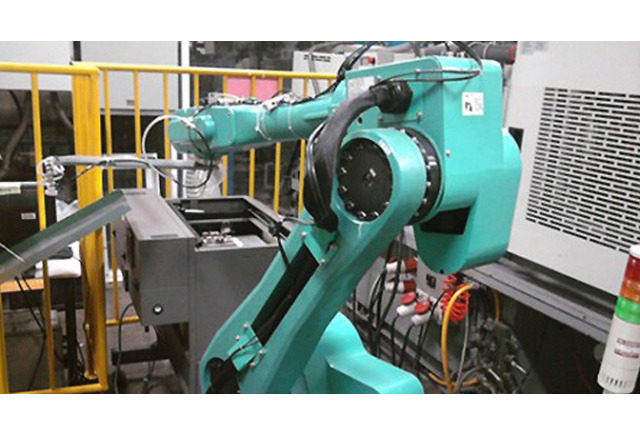Apple's main manufacturing partner, Foxconn, is planning to eliminate human workers from its Chinese factories in three phases — something already complete at some locations, a manager with Foxconn's Automation Technology Development Committee revealed on Friday.
In the first phase a factory is equipped with robots at individual workstations, handling tasks that are too dangerous for humans or simply things people don't want to do, Dai Jia-peng told DigiTimes. The second stage scales up to entire production lines, and by the third stage, only a minimum staff is present for production, logistics, testing, and inspection.
Factories in Chengdu, Shenzhen, and Zhengzhou have reached the second and third phases, Dai said. Notably, at Zhengzhou — where roughly half of Apple's iPhones are made — only a CNC line has been fully automated.
Foxconn has deployed over 40,000 "Foxbots" so far, and is capable of building about 10,000 per year, according to Dai. On top of the industrial robots, the company is also developing medical ones. Dai commented that the industrial machines can't completely replace humans, since the latter have the ability to quickly switch from one task to another.
Ultimately automation should offer a number of benefits to Foxconn executives, including faster production, cheaper labor expenses, and the ability to outbid the competition. The switch has already eliminated thousands of jobs however, and could disrupt the economies of some Chinese cities.
 Roger Fingas
Roger Fingas








 Marko Zivkovic
Marko Zivkovic
 Christine McKee
Christine McKee
 Andrew Orr
Andrew Orr
 Andrew O'Hara
Andrew O'Hara
 William Gallagher
William Gallagher

 Mike Wuerthele
Mike Wuerthele
 Bon Adamson
Bon Adamson




-m.jpg)



84 Comments
And so,lies the next big world economic challenge - how will the typical current factory and service industry workers earn a living when manufacturing and support services are automated? The factories may return but with very few jobs.
This is exactly why Trump's promises of bringing manufacturing back to America are more likely to have a negative effect on jobs. Not that it's Trump's fault, but promising factory workers that there is some great future for them is irresponsible at best, and dangerous on some level.
We have to face up to the fact that jobs requiring little education, skills, or training are never coming back. Service and assembly line jobs are a thing of the past. It will take 50 years or more before trade jobs will disappear. We will continue to need carpenters, electricians, brick masons, plumbers, welders, ironworkers, etc. Robots won’t be able to build a skyscraper on their own for some time yet IMHO. So what do we do about that segment of society that becomes unemployable because of automation? That’s the $64K question. We all know individuals who just aren’t cut out for highly skilled, highly educated, highly trained jobs.
Automation of line workers is inevitable. Automation increases when the technology has improved enough and when the cost of using the person exceeds the cost of using the machine. Guessing this will also decrease the number of leaks in the supply chain!